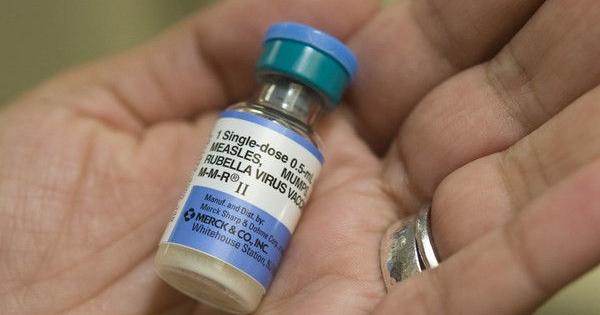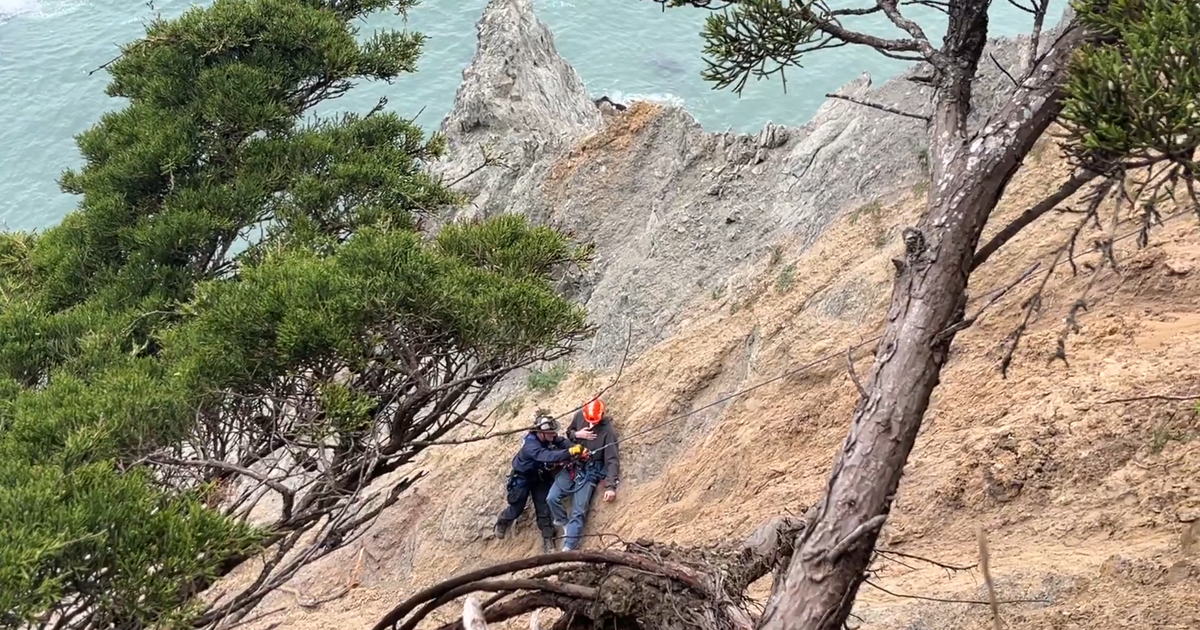Louisiana
How will Louisiana’s anti-LGBTQ politics impact the Pride parade? Maybe not the way you think.

Pride Month, a celebration of LGBTQ+ identity, has begun. But it’s probably not a particularly comfortable time for lesbian, gay, bisexual, transgender and queer people in Louisiana.
The state Senate is considering bills to outlaw the discussion of sexual identity in schools and gender-affirming medical care for young people. The lawmakers are also looking at a bill that would allow school employees to ignore students’ wishes to be addressed by the pronouns of their choice – he, she, or they.
The potential Louisiana laws are part of a national trend of anti-LGBTQ+ attitudes being reasserted in American culture. But is this atmosphere of retrenchment going to diminish the upcoming Pride parade and other such events in New Orleans?
Possibly the reverse effect
Probably not. In fact, organizers expect large crowds as the queer community and allies show up to celebrate and demonstrate support.
“Honestly, it makes us more resolute,” said Sarah Manowitz, one of the planners of the Pride parade that takes place at 6 p.m. on June 10.
Manowitz said that she recalls “being in tears” when last year’s parade rolled into the French Quarter and she first laid eyes on the mass of people who’d turned out for the event.
“I’m thankful that we live in a blue dot in a red state,” she said, referring to New Orleans’ general acceptance of its large gay population, despite prevailing attitudes elsewhere in the state.
Manowitz said she’s already seen evidence of community support in New Orleans. Her French Quarter neighbors, whom she believes are straight, have decorated their balcony with rainbow bunting in solidarity.
Economic impact
Events like the Pride parade, the Southern Decadence celebration in August, Halloween and Carnival draw large numbers of LGBTQ+ visitors to the city. Some fear that recent trends in the Louisiana Legislature could cause a downturn in tourism. But the situation is complicated.
After Florida’s so-called “Don’t Say Gay” law went into effect in 2022, prohibiting classroom instruction about sexual orientation and gender identity, LGBTQ+ tourists might have understandably avoided the Sunshine State entirely. But according to reporting by the Associated Press, such tourists “are flocking” to Orlando’s Gay Days in the first days of June anyway.
Manowitz said that instead of simply boycotting states that impose offensive laws, some LGBTQ+ tourists will approach the situation strategically. Friends of hers planned to visit Florida, but to concentrate their spending in gay-owned, gay-friendly establishments, she said.
The point is not to punish friendly businesses for the actions of politicians. The same strategy applies to Tennessee, Manowitz said, where public drag performances were banned in 2022.
The New Orleans Pride parade has no official theme, but Manowitz said that many participants will promote the position that “drag is not a crime.”
“Everyone is expressing it in their own way,” she said.

People parade through the French Quarter during the New Orleans Pride festival in June.
The mayor helps out
Manowitz said the 2023 Pride parade will cost around $12,000, paid for by corporate sponsorships of the 10 to 15 floats and fundraisers. Manowitz thanked Mayor LaToya Cantrell for help in securing an affordable post-parade trash pickup contract. The roughly $4,000 it will cost in 2023 is just a quarter of last year’s bill, Manowitz said.
“As we continue to see a rise in anti-LGBTQIA+ rhetoric, actions, and legislation around the nation, including here in our own state, this Pride Month is now more important than ever to embrace your true, authentic self,” wrote Cantrell, commenting on the city’s support of the event.
As usual, the Pride parade will lineup on Elysian Fields Avenue before embarking on a circuitous route through the French Quarter. The precise path hasn’t been determined.
Near the start of the parade lies the Phoenix Bar, where an outdoor live music event called PrideFest 2023 will take place in the hours before the parade. Bar owner Tracy Deroche said he expects a larger than usual turnout for the fest, thanks in part to the flurry of unfriendly politics in the state and nation.
“Honestly, we’re not backing down,” he said. “We’re not scared.”
The Orleans Parish Sheriff’s Office will provide security, he said.

The Krewe of Dolly marches in the annual Pride Parade, a celebration of LGBTQ identity, through the French Quarter in New Orleans, Saturday, June 11, 2022.
Bud Light nonsense
He believes that the public will be especially inspired to attend Pride events because of controversies like “all that nonsense about a Bud Light can.” He was referring to the beer company’s decision to first enlist transgender TikTok star Dylan Mulvaney as part of a Bud Light promotion, then caving in to conservative pressure to distance itself from the celebrity.
Like Manowitz, Deroche said that boycotting states with laws that impact queer people negatively may be the wrong move.
“We had a long debate about Tennessee,” he said, after the ban on drag performances. “But we need to support the bars and restaurants,” despite the views of politicians.
‘Choke Hole’ is exactly like a traveling pro wrestling show, only way, way different. As the news release explains it, ‘Choke Hole’ aims to pu…

Louisiana
A Louisiana charter school for dyslexic students plans to expand. See where, when

As many as one in every five Americans has dyslexia.
Yet as of 2023, only about 1% of the nearly 700,000 students in Louisiana public schools have been identified as having dyslexia.
For dyslexic children who go untreated, gaps in reading and writing abilities can begin as early as first grade, with potential consequences over time including lower high school graduation rates or college enrollment numbers, and higher chances of unemployment or incarceration.
That’s why Louisiana Key Academy, a nonprofit charter school, has sought to bridge the gap for dyslexic students by providing testing and specialized education programs at no cost to parents. Since its launch in Baton Rouge in 2013, the school has assisted hundreds of students and expanded to additional locations across the state.
The Louisiana Key Academy plans to open its fifth and newest location in Jefferson Parish, the largest public school system in the state, for the 2027-2028 school year. The Louisiana State Board of Elementary and Secondary Education will vote to approve the new location in August.
“I think every parish in the state needs a Louisiana Key Academy,” said former state Rep. Joe Marino, no party-Gretna.
Fourth grade teacher Olivia LeDuff helps student Aaliyah Williams read a short story on a tablet during a Structured Language Arts lesson at Louisiana Key Academy in Baton Rouge on Wednesday, May 21, 2025.
Dyslexia is a learning disability that affects a person’s phonological processing, or ability to speak, read and spell. Dyslexia has no visible symptoms, and affects people for their entire lives.
Those with dyslexia require specialized education to meet their needs, including at least 90 minutes per day of reading instruction. Clinical diagnoses require comprehensive evaluation, including both tests and interviews.
‘What’s wrong with me?’
Dr. Laura Cassidy, wife to U.S. Senator Bill Cassidy, R-Louisiana, co-founded the school with that in mind 12 years ago after watching her daughter, who is dyslexic, struggle at her private school.
“We’re spending a lot of money, but is this really going to get the kids where they need to get?” Cassidy recalled.
Cassidy said dyslexic children too often go undiagnosed or untreated, as costs and time constraints associated with the diagnosis, treatment and tutoring for the disability — as well as stigmas and lack of awareness — make it difficult for parents to access proper care, especially for those who are economically disadvantaged.

Student Kaiden Neal, center, smiles while reading aloud alongside Myles Netterville with the help of 2nd grade teacher Nicole Havard during a Structured Language Arts lesson at Louisiana Key Academy in Baton Rouge on Wednesday, May 21, 2025.
A recent study from Sally Shaywitz, co-director of the Yale Center for Creativity and Dyslexia, found that about half of children grades K-2 at two New Orleans public charter schools were at-risk of dyslexia, and that a disproportionate number of Black students have dyslexia that goes undiagnosed or untreated.
Cassidy said dyslexic children who fall behind in school because they are undiagnosed can suffer from confidence issues in the classroom, which over time can lead them to drop out as early as middle school.
“You can imagine, if you’re smart but you’re struggling in school, and your classmates are pacing ahead of you, you’re wondering, ‘What’s wrong with me?’” Cassidy said. “If you’re not identified as dyslexic, then parents or teachers or administrators can sometimes think (you) are lazy or not smart.”
Those beliefs oftentimes lead to stigmas associated with dyslexia, which causes many to conceal that they have it from others, Cassidy said.
Specialized education
At Louisiana Key Academy, students are provided with 90-minute reading instruction in small groups every day, with six students for every one teacher. Children are tested for free before enrollment, and several teachers undergo two-year training in language therapy to help students.
The school operates under guidance from Shaywitz and her husband, Dr. Bennett Shaywitz, the other co-director for The Yale Center.

Principal Lisa Card, right, chats with 4th grade teacher Olivia LeDuff and student Aaliyah Williams during a Structured Language Arts lesson at Louisiana Key Academy in Baton Rouge on Wednesday, May 21, 2025.
The Baton Rouge campus serves 440 students in grades first through ninth, and won approval in 2022 to add a 10th grade. The campus relocated to 5015 Auto Plex Drive last year to accommodate the change.
In recent years, Key Academy has opened additional locations in Shreveport and Covington, with a learning pod in Ruston opening in the 2025-2026 school year.
Few other schools in the region cater to dyslexic students, and even fewer provide that education tuition-free. Cassidy said parents commute from all over the state to enroll their children at Louisiana Key Academy, and some parents have even moved from out of state for the education.
“You’re just wondering, ‘Why can’t my child read? Why is my child so unhappy?’” Cassidy said. “It’s this enigma you’re not getting answers for, and then there is an answer. That’s why most parents end up bringing their kids to our school and, in the interview process, cry.”

Student Zara Williams puts her finger under the words of her book while reading aloud during a Structured Language Arts lesson at Louisiana Key Academy in Baton Rouge on Wednesday, May 21, 2025.
Statewide change
In addition to her work at the charter school, Cassidy has lobbied for changes to state education policy regarding the identification and reporting of dyslexia in public schools.
In 2022, Marino authored legislation to require that all teacher education programs include at least three credit hours pertaining to the education of dyslexic students. A year later, Cassidy worked with Marino to pass legislation requiring all kindergarten teachers to screen their students for dyslexia at the start of the second semester, a law that was expanded last year to include additional testing.
“Under the current school system, as long as they are able to continue to progress without failing, they don’t identify dyslexia,” Marino said. “You might have a students struggling to get a C or D, but they aren’t catching them as dyslexic because they haven’t failed a grade. Most of these kids aren’t being identified until they’ve already missed out on the most formative years of their education.”
Cassidy’s husband, chair of the U.S. Senate Health, Education, Labor and Pensions committee, has also made dyslexia a key issue on his platform and has sponsored multiple bills seeking to improve accessibility to screening and treatment nationwide.

Student Evie Kennedy looks at her teacher Olivia LeDuff over the top of her book during a Structured Language Arts lesson at Louisiana Key Academy in Baton Rouge on Wednesday, May 21, 2025.
Marino commended Dr. Laura Cassidy for her work in helping students with dyslexia across the state, and with educating him and other policymakers on the subject and its importance.
“She’s a force of nature when it comes to doing good,” Marino said. “I never doubt or underestimate that Dr. Cassidy is going to get something done because I’ve seen it over and over again.”
Louisiana
Here’s how to protect the Baton Rouge bat population, plus how they benefit Louisiana yards.

Bats are all around, but due to their nocturnal nature, Baton Rouge residents do not see them often. Misconceptions about the flying mammals abound, despite their significance to ecological systems.
Aaron Ashbrook, an assistant professor for the LSU Entomology department, specializes in urban entomology. He recently hosted a seminar series at LSU AgCenter’s LaHouse Research and Education Center for state sanitarians who expressed interest in the local bat population. Ashbrook’s lecture focused on correcting misinformation about pollinator support, mosquito management and bat conservation.
After the interest and success of the sanitarian lecture, Ashbrook and Christine Gambino, an extension associate for the entomology department, joined forces to plan a “Bats in Our Ecosystem Day” for the public.
Full lecture hall in the Howe-Russell auditorium to hear Teague O’Mara at the “Bats in Our Ecosystem Day.”
Ashbrook and Gambino planned a two-part event on May 24 that included a lecture on different bat species, their benefits and a demonstration on how to build a bat house.
Initially, the presentations were supposed to take place at LaHouse, but due to the large amount of interest and turnout, the event was moved to LSU’s Howe Russell Auditorium.
Gambino said that 405 people registered and 85 attended. She has noticed an increase in similar events that focus on gardens, pollinators and conservation efforts.
“We had people drive in from all over the state to attend,” she said. “We wanted to get the word out about bats, and we got lots of interest. People who couldn’t attend asked for the presentation to be recorded.”

From left: Teague O’Mara, Christine Gambino, Aaron Ashbrook and Mike Meyers after the bat conservation event.
Ashbrook and Gambino were pleasantly surprised at the registration and the turnout.
Teague O’Mara, director of conservation evidence at Bat Conservation International and adjunct professor of biological sciences at Southeastern Louisiana University, presented the lecture on bat diversity, Louisiana bat species, bat abilities, the benefits of bats for humans, threats to the bat population and solutions to protect bats.
O’Mara shared that there are 12 bat species present in Louisiana, all of which are insectivores and protected by law. Mexican free-tailed bats reside in the state year-round and primarily feed on moths, beetles, flies and ants.

Bat house that Mike Meyers, the Boy Scout Master who demonstrated building a bat house at the bat conservation event.
Beneficially, bats consume agricultural pests and insects, which positively affects farming economies. They also disperse seeds and pollinate commercially and ecologically valuable plants like agave, which flowers at night.
O’Mara included threats to bat populations, which include white-nose syndrome, wind turbines, land use change like deforestation and human diseases. The more natural separation between bats and humans provides a buffer, which means the less chance of viral spillover between the two species.
There are multiple ways Louisianans can help protect the local bat population, including building and setting up a bat house — which Mike Meyers, a Boy Scout Master in Metairie, demonstrated at the “Bats in Our Ecosystem Day.”

Mike Meyers, Boy Scout Master, demonstrates building a bat house at the bat conservation event.
The bat houses must be attached to a structure that could be inhabited by bats and need to be built with specific dimensions, distance from a house and height for the bats, to allow them to find the space comfortable and appealing to live in. Meyers even recommends a specific color, nutmeg, to paint the houses.
Other ways people can protect bats are planting bat-friendly pollinator gardens, using less pesticides and standing up for bat conservation.
For more information, visit batcon.org.
Louisiana
How to safely enjoy Louisiana summers

BATON ROUGE, La. (WAFB) – The sweltering heat and humidity over the capital region are making it feel like triple digits.
”It’s really important to stay hydrated. I always hydrate before I come, during my walk/run, and afterwards,” said Pam Windham, a runner in Baton Rouge.
Windham is also a nurse who runs two or three times a week, and she’s lived in the Louisiana heat her entire life, so she knows how dangerous it can be.
”Coming out in this kind of heat, I mean, I’ve grown up in it, I’ve done sports my whole life, and I’m still in the emergency room dealing with people that come in and have a heat stroke with temp over 104, 105°,” explained Windham.
Mike Chustz, the EMS Chief at West Baton Rouge Fire Department, says this is nothing to mess around with.
“Untreated heat stroke will result in death almost 100% of the time, so you need to get treatment and get out of the heat before you get to that point,” said Chustz.
Chustz says wearing sunscreen, light colored and loose-fitting clothes, and hats are ways to stay safe in the sun.
They recommend you do outdoor activities in the early morning and the late evening, but if you can’t, Chustz wants you to know what to look for. Signs of heat illness can be leg cramping, lightheadedness, profuse sweating, dizziness, and confusion. If it doesn’t resolve in a few minutes after getting out of the sun and hydrating, call for help.
” Heat-related goes probably to our top three or four calls in the middle of the summer, and we’re just now starting to see it because it’s just starting to get into the mid-90s,” explained Chustz.
While emergency officials warn the elderly about the heat, Chustz says they have been treating more younger people for heat stroke. And the younger they are, the less their body can handle the heat.
”Never leave a child or a pet or anybody in a car when it’s unattended, especially if it’s off, if you shut that vehicle off, everyone comes out,” added Chustz, “in a car parked in the summer, we did it in July one year, and it got to be 128° in about 15 minutes in that car. Humans can’t sustain that for a long time, especially infants and small children.”
Experts say ways to remember a child in the backseat are to set alarms or place something in the backseat, like your purse or phone.
Click here to report a typo. Please include the headline.
Click here to subscribe to our WAFB 9 News daily digest and breaking news alerts delivered straight to your email inbox.
Copyright 2025 WAFB. All rights reserved.
-

 News1 week ago
News1 week agoVideo: Faizan Zaki Wins Spelling Bee
-

 Politics1 week ago
Politics1 week agoMichelle Obama facing backlash over claim about women's reproductive health
-

 Technology1 week ago
Technology1 week agoOpenAI wants ChatGPT to be a ‘super assistant’ for every part of your life
-

 Technology1 week ago
Technology1 week agoSEC drops Binance lawsuit in yet another gift to crypto
-

 Movie Reviews1 week ago
Movie Reviews1 week agoThe Verdict Movie Review: When manipulation meets its match
-

 Technology1 week ago
Technology1 week agoWhy do SpaceX rockets keep exploding?
-

 World1 week ago
World1 week agoTwo killed in Russian attacks on Ukraine before possible talks in Turkiye
-

 News1 week ago
News1 week agoOil companies face a wrongful death suit tied to climate change




















